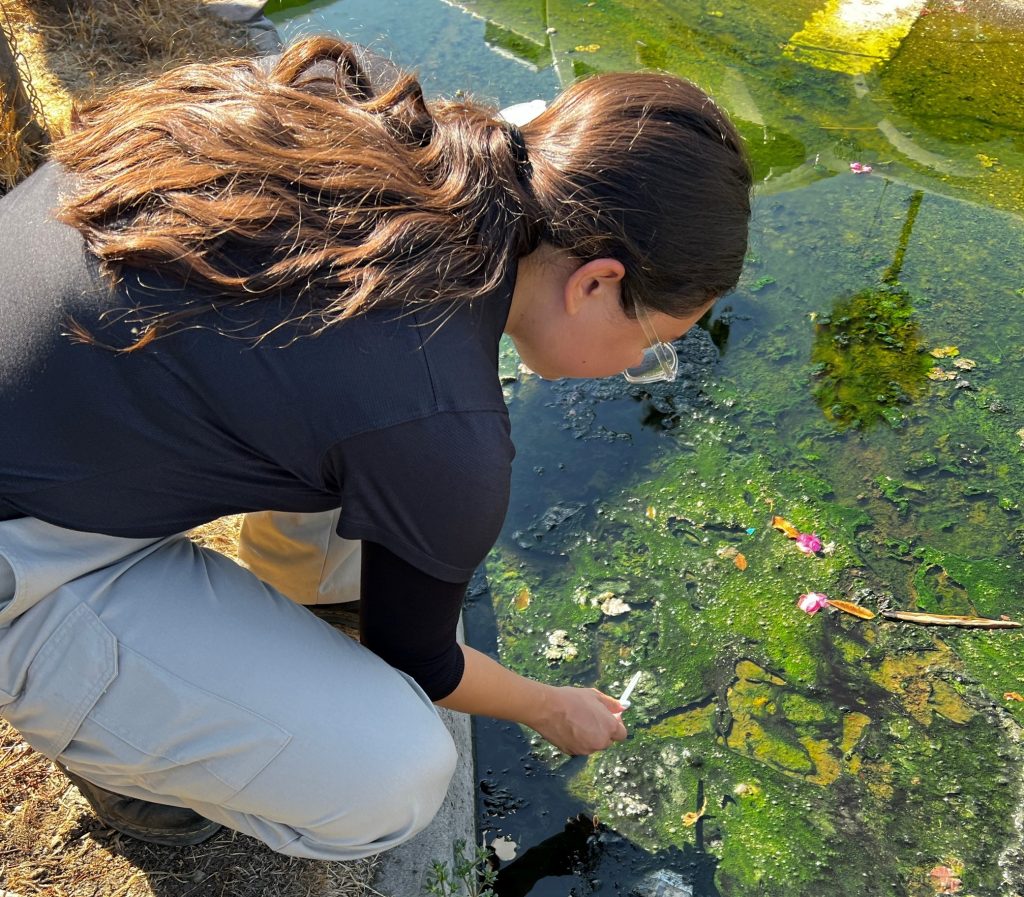

The San Bernardino County Mosquito and Vector Control Program (MVCP) encourages residents to continue taking steps to prevent mosquito activity. In addition to itchy bites and being a nuisance, mosquitoes can transmit diseases like dengue, West Nile virus, St. Louis encephalitis, Western Equine encephalitis and Zika.
Be on the lookout for Aedes mosquitoes, an invasive species that can spread dengue and Zika. Aedes mosquitoes do not need as much water as native Culex mosquitoes to breed and rely on small containers of water around the home, which often collect water from over-watering plants and lawns. Items like lawn drains, plant saucers, recycling and other small containers are prime places for Aedes mosquitoes to breed. Unlike Culex mosquitoes, Aedes mosquitoes are active throughout the day and bite multiple times, especially around the ankles, earning them the moniker “ankle-biters.”
“The Aedes mosquito presents a new threat to San Bernardino County residents,” said San Bernardino County Health Officer Dr. Michael Sequeira. “For the first time ever, there are locally acquired cases of dengue virus in Los Angeles and San Diego counties, making it more important to take preventive measures to avoid mosquito bites.”
Along with fever, nausea and vomiting, dengue symptoms include aches and pain of the eyes, muscles, bones and joints. Those who have health conditions like diabetes, previously had dengue, or are older than 60 years of age are at higher risk of developing severe dengue. Symptoms of severe dengue include blood in the stool or vomit, bleeding from the nose, mouth, or gums, severe abdominal pain and vomiting three or more times a day. Anyone who suspects they have severe dengue should seek immediate medical attention. For more information about dengue and its presence in California, please visit the California Department of Public Health’s website.
Here’s what you can do to avoid mosquito bites and prevent mosquito breeding:
- Drain or dump all standing water in and around your home where mosquitoes can lay eggs such as birdbaths, old tires, buckets, plant saucers, clogged gutters or even puddles from leaky sprinklers.
- Repair and properly maintain any pools, ponds or spas that are not in good working order to prevent mosquito breeding. If you have a pond, MVCP offers free mosquito fish to residents in the service area.
- Ensure doors and windows have tight-fitting screens. Repair or replace screens that have tears or holes to prevent mosquitoes from entering your home.
- Wear shoes, socks, pants and long-sleeved shirts that are loose-fitting and light-colored when going outdoors.
- Apply insect repellent. Check that your insect repellent contains DEET, Picaridin, IR3535 or oil of lemon eucalyptus and apply it according to the manufacturer’s directions.
- Contact MVCP to report green pools or request a courtesy mosquito inspection.
- When traveling abroad, remember to pack mosquito repellent and consult the Centers for Disease Control and Prevention’s (CDC) travel website for destination-specific health recommendations.
For more information, contact MVCP at (800) 442-2283 or visit our website, ehs.sbcounty.gov.
Additional County Update News – October 24, 2024
- Early vote sites for 2024 General Election make voting more convenient
- Board Actions
- County Museum hosts annual Shake or Treat Earthquake and Emergency Preparedness Fair
- County to illuminate buildings green in support of veterans
- San Bernardino County Sheriff Shannon Dicus highlights key accomplishments
- Mobile Medical Clinic at Newberry Elementary School
- Unshakable Readiness: 2024 Great ShakeOut Recap
- Airports leadership focuses on operational excellence by investing in staff resources, certifications
- Public Health launches campaign to increase awareness of childhood lead poisoning
- San Bernardino County destinations
- Call for submissions: Share your favorite San Bernardino County destinations
- San Bernardino County history
- Things to Do
- Pet of the Week
